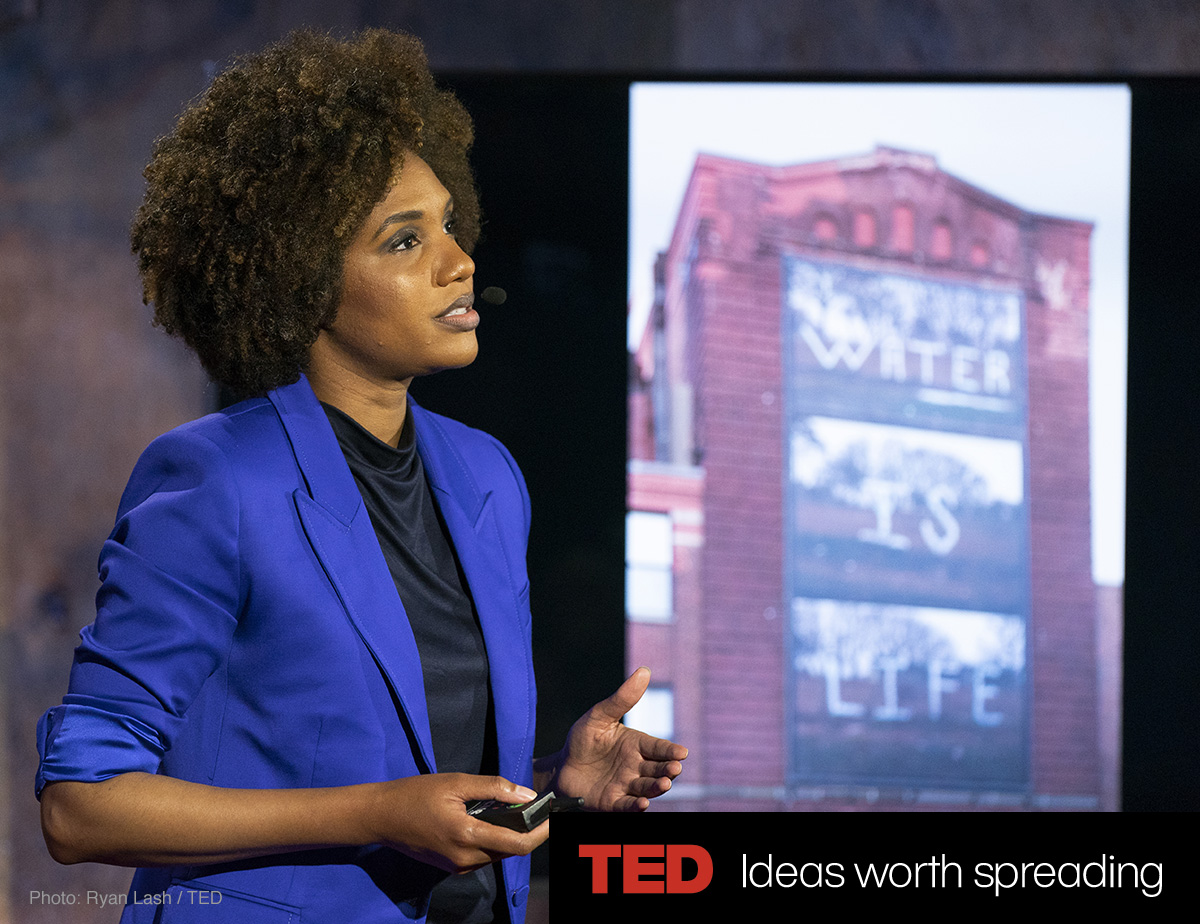LaToya Ruby Frazier: What Is The Human Cost Of Toxic Water And Environmental Racism?
TED Radio Hour
By NPR/TED Staff
We need water to live. But with rising seas and so many lacking clean water — water is in crisis and so are we. In this TED Radio Hour, speakers explore ideas around restoring our relationship with water.

Part 2 of the TED Radio Hour episode Our Relationship With Water
Flint, Michigan is the site of one of the worst ongoing water crises in recent U.S. history. Artist LaToya Ruby Frazier has spent years capturing the stories of life living with toxic water.
WALLING: This is LaToya Ruby Frazier.
FRAZIER: When we all wake up in the morning, the first thing you’re going to do is get in the shower, right? The second thing you’re going to do is brush your teeth. Well, imagine what that feels like when you can’t do that.
ZOMORODI: LaToya is a visual artist and a professor at the School of the Art Institute of Chicago. Much of her work focuses on the lives of working-class families in the Rust Belt.
FRAZIER: When I first arrived in Flint the summer of 2016, there were well over 29,000 homes that were impacted. And I think that’s what struck me the most – which is where Shea Cobb and her mother, Ms. Renee, and her daughter, Zion, who were 8 years old at the time, they were living in the midst of this.
ZOMORODI: Shea is also an artist and a school bus driver. And LaToya spent several years with Shea, her mother, Renee, and her daughter, Zion, documenting their lives in Flint.
FRAZIER: Yeah. I remember the first time I met Shea. It was quite beautiful. We met at a diner, her favorite diner, called Captain Coty’s, where she liked to go get buttermilk pancakes at the end of her school bus route in the mornings. And upon meeting each other, sitting down in the booth just looking at each other, it felt like a double portrait in a way. You know, she’s in her early 30s and a really diligent, hard-working artists. And so I felt that it was my responsibility to document and cover what it’s been like, you know, raising her daughter during this ongoing water crisis.
ZOMORODI: For people who maybe don’t quite understand exactly what Shea’s day-to-day life was like without having easy access to water – because it’s not like you could just boil the water in Flint, right?
FRAZIER: Well, the water quality was so bad that she couldn’t inhabit her family home at 303 Mary Street. When I arrived, she was living in another apartment with her mother. And, you know, the water contamination was so severe that she couldn’t brush her teeth. You know, you take a shower and brush your teeth. Well, with contaminated water, you can’t do either of those two things.
SHEA COBB: We get a bottle of water. And we waterfall it. You brush your teeth. You spit it out. You waterfall your bottle. And you brush some more. We don’t ingest the water on any level.
FRAZIER: You know, one of the standout images in the photo essay is seeing Shea pouring water from a plastic water bottle into Zion’s mouth to gargle with it. And I shoot it with a fast shutter speed so that it freezes the water drop just before it touches Zion’s tongue. And you see the toothbrush at the bottom right-hand part of the frame – so brushing her teeth with bottled water, having to bathe with bottled water, having to cook or not cook at all.
COBB: Since the water situation, I’m discouraged to cook in my house and use my kitchen. We’ll go out to eat. And we’ll eat on the outskirts of the city.
FRAZIER: We would go to a restaurant called Badawest to eat dinner there. And even there, you know, they were serving glasses of water. And, you know, Shea would never drink it. And she would forbid Zion to drink it.
COBB: The Flint River is toxic, has been toxic for years. Fecal matter in the Flint River, toxic chemicals and waste dumped in the Flint River. We know not to drink out the Flint River. We won’t swim in it. We don’t mess with it. We don’t even like the smell of it. When it get hot outside, downtown Flint, you can smell the Flint River. It stinks. Why would we drink it?
FRAZIER: It is 2020. This started six years ago. Flint might not be headline news any longer. But the water crisis is still going on. We can’t forget about the men, the women and children and the families in Flint. […]
Following the Flint Is Family project, Frazier partnered with AWG Contracting and Moses West to bring an atmospheric water generator to Flint so that residents could produce their own supply of clean water. It is in its second year of use.
Courtesy of: NPR / TED Radio Hour

